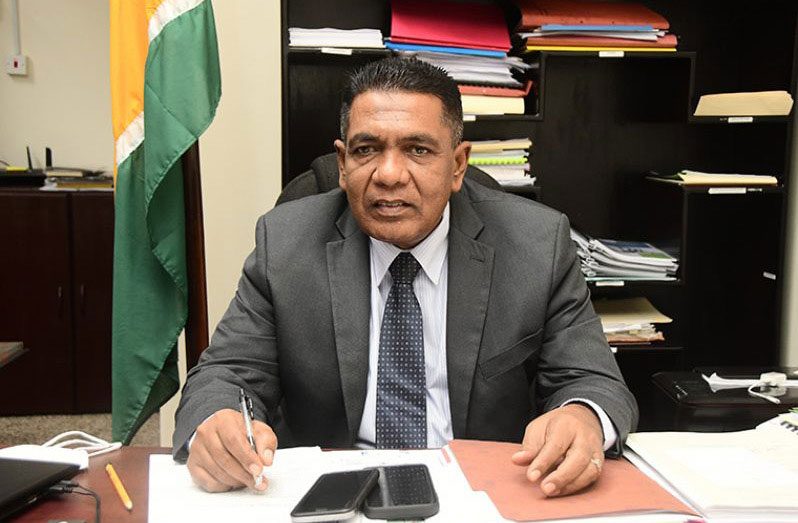— Minister Mustapha
CARICOM countries are ready for investments in the agricultural sector, Guyana’s Minister of Agriculture Zulfikar Mustapha advised regional stakeholders on Wednesday.
Mustapha was joined by CARICOM Assistant Secretary-General in Trade and Economic Integration, Joseph Cox, in a virtual discussion on an upcoming agriculture expo in Guyana. The virtual meeting was convened by the Global Business Leadership Forum.
Guyana will host an Agri-Food Investment Forum and Expo at the Arthur Chung Convention Centre from May 19-21 under the theme, Investing in Vision 25 by 2025.
Mustapha said if the region is looking to reduce its food-importation bill by 25 per cent by 2025, there must be political and private-sector willingness and partnerships.
Annually, the region’s food-importation bill was about US$6 billion which was only expected to increase in the future, he pointed out.
Mustapha highlighted the poultry industry, corn and soya as main sectors that have the potential to expand regionally.
“We have to woo investors to come to the Caribbean. Almost 98 per cent of poultry meats and products are being imported into the Caribbean. We have places like [sic] Guyana, Suriname, Belize, T&T, Jamaica and Barbados that can satisfy the needs of poultry demands in the Caribbean.
“Corn and soya are linked directly to the poultry industry in producing protein and feed and there is where we can start production. In the Caribbean, we already have a market for this important crop,” he said.
Mustapha said in Guyana and other countries there was a lot of land space and fresh water and a conducive climate for production.
He said there were already proposals and at the expo they will be looking to match capital investments with assets and partnerships.
He said there were 200 interested participants from the US, Canada, Geneva, Ghana, Cameroon and China.
“Investors can come and set up shop by themselves and as long as the laws permit. We also have a lot of incentives for investments such as agriculture [sic] machinery, no taxes or value-added tax on agriculture inputs.
“I don’t think we have problems with labour. We have enough labour to satisfy the job market in the Caribbean, both skilled and unskilled,” Mustapha said.
He added that CARICOM was seeking ways to make doing business easier, removing trade barriers and updating certain standards for effective operations that meet sanitary and phytosanitary requirements.
Cox said while the goal was to reduce the food-importation bill, other targets included development of the agricultural sector, increasing private-sector involvement and improving the value chain.
To address these concerns, he said there must be a collaborative effort among CARICOM states in areas of transport and ease of doing business for progress to take place.
“Inter-island transportation has been a long-standing challenge, but we are far advanced in the establishment of a fast ferry [service] to really treat with the movement of products across the island chain, especially the southern islands. There is some element of hope.
“There is a great need for agricultural insurance. The primary production is important, but we also need the support mechanism.”
Reducing food imports in the region has been a main objective of CARICOM and several heads of government have taken up the initiative as a personal task. Leading the initiative was Guyana’s President, Dr Mohamed Irfaan Ali, who was also Head of Government with responsibility for agriculture in the CARICOM quasi-Cabinet. (Trinidad and Tobago Newsday)




.jpg)









